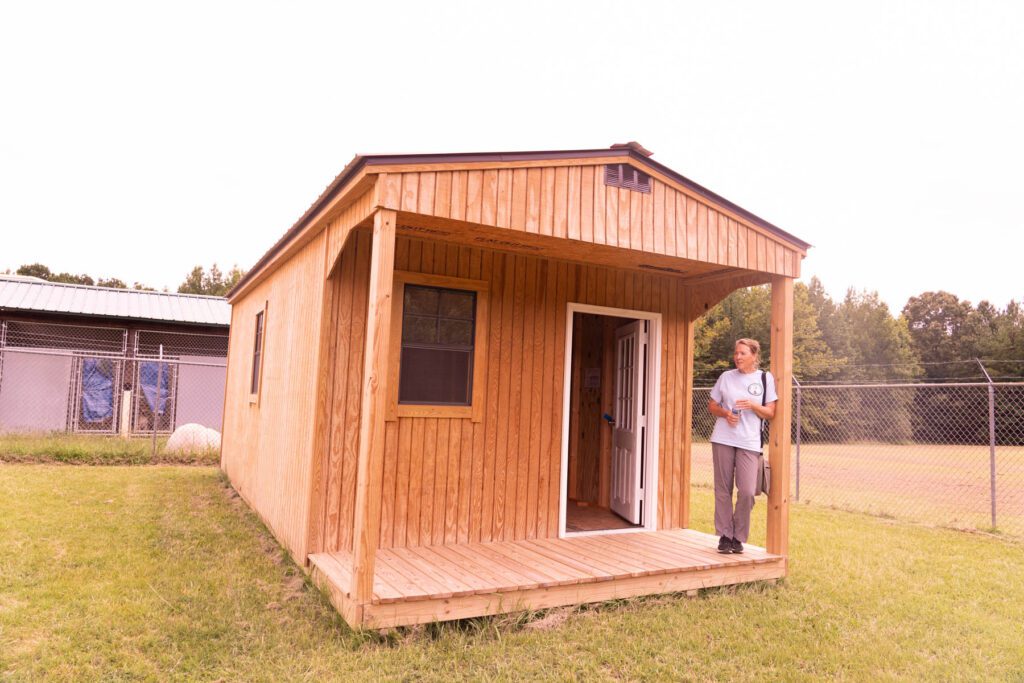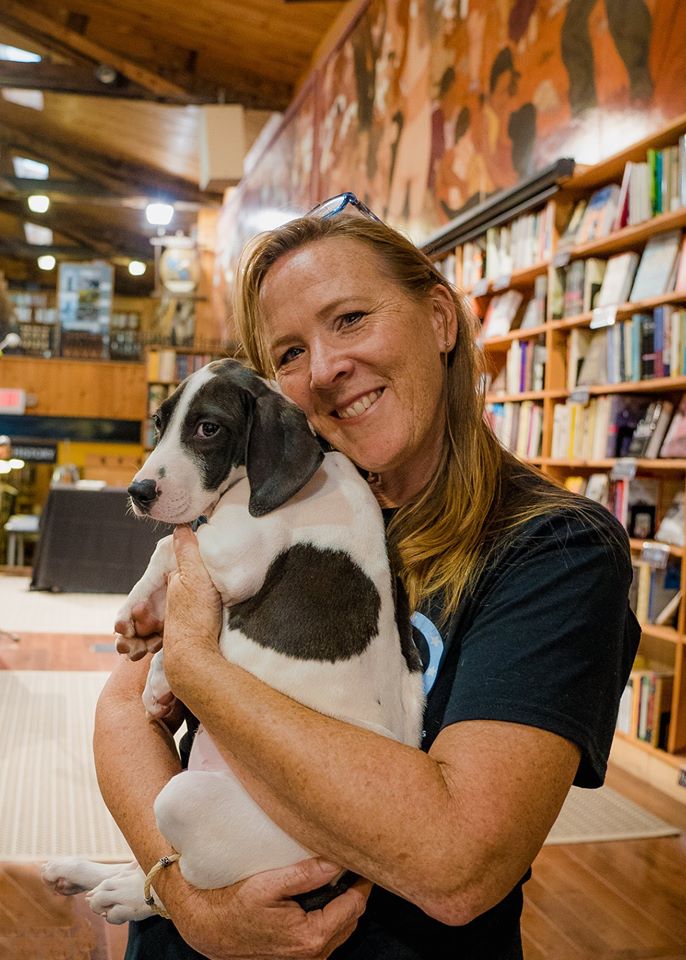When I think back on last week and our summer shelter tour, the one word that keeps coming to mind is: LEADERSHIP.
We met some remarkable leaders. People who you could probably say are the only thing standing between life and death for too many dogs.






As I said in last week’s post, there are three things a successful shelter has: Community engagement, veterinary access, and leadership. Without those three things, it’s much harder to save dogs. But leadership is the most critical piece.
As expected, everywhere we traveled in West Virginia and Kentucky and Mississippi, shelters are overfull, adoptions have slowed, and rescues are not pulling.




But none of the shelters we visited are euthanizing for space. And the main reason is that they have leaders who are committed to finding other options.
Maybe that means doubling up kennels as Christina has at Leitchfield Animal Shelter in Leitchfield, Kentucky. At the Corinth-Alcorn Animal Shelter in Corinth, Mississippi, that’s meant Charlotte has stashed dogs in the laundry room and repurposed outside areas, plus obtained a new portable 12 x 24 portable building (thanks to an Instagrant from us).

Maybe that means you close to intake and ask would-be owner surrenders to hold on to their dogs until you make room, giving them supplies or veterinary help to get them through, as we saw in Huntington-Cabell-Wayne Regional shelter and at Lewis-Upshur Animal Control Shelter in Buckhannon, West Virginia. Both of those shelters also empower volunteers to help care for the animals and were busy places with dogs out walking, playing, and interacting with the volunteers. A crowded shelter can be stressful for dogs, but the daily attention and exercise reduce that stress.


Maybe that means utilizing foster care. At Anderson County Animal Care and Control in Lawrenceburg, Kentucky, Zach has 28 dogs in foster care. That gives him the space and time to work with dogs that would likely be euthanized at many shelters, but at Anderson they get a second chance.
Traci at McCracken Humane Society in Paducah, Kentucky has too many dogs, but she is working her tail off (so to speak) to get her dogs exposure in hopes of getting them adopted. She invites the public into her building with regular ‘Reading nights’ that fill the kennel aisles with parents and children reading to the dogs (from books brought over in the library’s bookmobile!), and when that’s not possible, she takes their animals out of the building to festivals and events.
It was inspiring to see the creative ways these directors are finding a way to save all the animals in their care, despite a historically challenging situation that shows no sign of letting up. In the coming weeks, I’ll share more details of their innovative programs and policies, and many of those ideas will be added to our free Resource Guide on the website.
As always, traveling to the shelters teaches us more about what all of us can do to help save the vulnerable animals in our midst. There is something everyone can do—no matter where you are. Here are just a few ideas:
Reach out to your local shelter/rescue and ask – What can I do to help?
Follow shelters and rescues on social media and comment and share their posts to expand their reach.
Foster an animal and be a true lifesaver.
Donate to your local shelter or to any of the shelters we list on our website. Most have wishlists and I always include them in our posts. See the full list of shelters/rescues we’ve visited here.
If you have a rescue animal, brag about that fact, and encourage others to rescue also. If more people choose to adopt than shop, we can start to nudge the needle in a different direction.
If you’d like to get involved on a small or large scale with our mission of raising awareness and resources for homeless dogs and the heroes who fight for them, reach out. We have projects large and small, ongoing opportunities, and are rolling out new volunteer positions all the time. Click here to fill out our volunteer application or email WhoWillLettheDogsOut@gmail.com.
If you haven’t already, be sure to subscribe by email so you can learn more about how together we can let the dogs out.

Until each one has a home,
Cara
If you want to learn more, be sure to subscribe to this blog. And help us spread the word by sharing this post with others. Visit our website to learn more.
You can also help raise awareness by following/commenting/sharing us on Facebook, Instagram, YouTube, Tik Tok, and the Who Will Let the Dogs Out podcast.

Learn more about what is happening in our southern shelters and rescues in the book, One Hundred Dogs & Counting: One Woman, Ten Thousand Miles, and a Journey Into the Heart of Shelters and Rescues (Pegasus Books, 2020). It’s the story of a challenging foster dog who inspired me to travel south to find out where all the dogs were coming from. It tells the story of how Who Will Let the Dogs Out began. Find it anywhere books are sold. A portion of the proceeds of every book sold go to help unwanted animals in the south.
For more information on any of our projects, to talk about rescue in your neck of the woods, or become a WWLDO volunteer, please email whowillletthedogsout@gmail.com or carasueachterberg@gmail.com.
And for links to everything WWLDO check out our Linktree.



Lh
Thanks to our lagging economy. People are saying they are having to choose to feed their family over their animals and having to surrender them. It is pitiful what has become of these poor animals in this lagging economy.